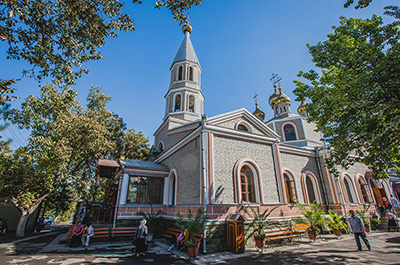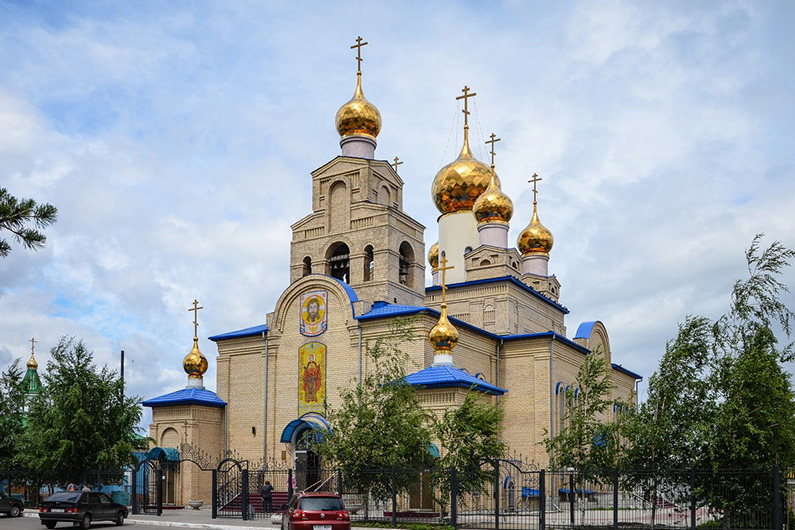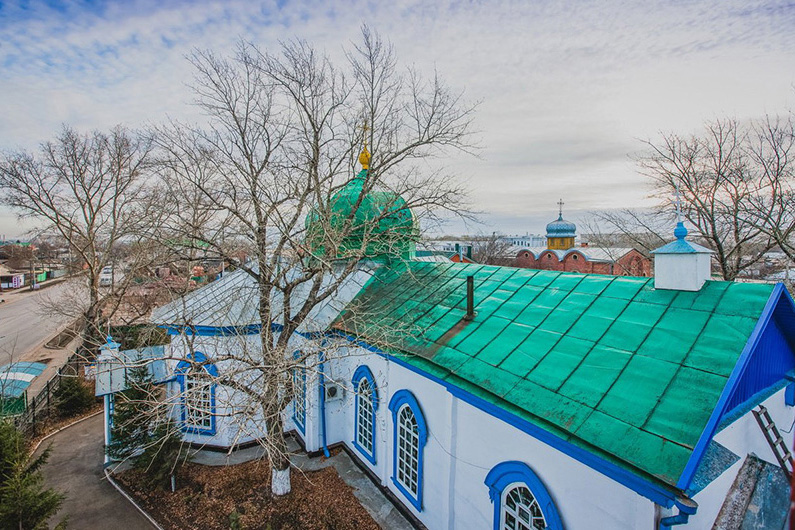
Greetings from Metropolitan Alexander of Astana and Kazakhstan to the organizers and participants of the International Scientific Conference "Eastern Christianity on the Silk Road" in memory of P.P. Semenov-Tyan-Shansky
- 16.11.2024, 13:37
- Новости на английском языке

Dear brothers and sisters!
I greet the participants of the international meeting, which brought together representatives of traditional Christian denominations and the scientific community. Today, within the walls of the spiritual, cultural and administrative center of the Orthodox Church of Kazakhstan, named after the confessor of faith, Metropolitan Joseph (Chernov), famous researchers - archaeologists, specialists studying historical artifacts of Central Asia have gathered.
Among the various fundamental ideas that determine the existence of people, set historical vectors and form civilizations, it is religious ideas that have played and continue to play a predominant and fundamental role. In the life of mankind throughout its existence, religion, faith in God or the supernatural world, adherence to spiritual norms and traditions have been the most important elements. Religious ideas and teachings contributed to the formation of moral values, legal and social norms, the emergence and development of science and education, culture and art.
All of us – spiritual and secular figures – are united by the desire to more accurately and in detail represent the real historical processes associated with the spread of Christianity in ancient times in the geographical area along the Great Silk Road. Gathering together at such events, we examine new scientific data, discuss the role of Christianity in the history of Eastern civilizations, its interaction with other religions and cultures, and exchange opinions on the impact of Christian doctrine and church customs on the people of Central Asia.
Today, more than ever, the study of traditional religions and their connection with the history of countries and nations is of serious interest. The relevance of our conference is determined by the special significance that Central Asia plays in modern international relations, being at the same time a field of interaction between world religions and cultures.
Especially, I would like to note the fact that the study of the history and spiritual heritage of traditional faiths is a necessary tool for developing dialogue and cooperation between civilizations, countries and nations. This knowledge have significant importance in combating manifestations of religious or national intolerance, discrimination, xenophobia and their tragic consequences. Christianity from ancient times to the present day, along with traditional peaceful Islam, has been and remains a significant factor in interethnic harmony and social stability for Central Asia and one of the sources of preserving and strengthening culture, public morality and high moral ideals.
“You will receive power when the Holy Spirit comes on you; and you will be my witnesses in Jerusalem, and in all Judea and Samaria, and to the ends of the earth” (Acts 1:8), the Savior said to his disciples. Since its inception, Christianity has been addressed to all of humanity; it has invariably strived to open up to the world, using all possible means to reach out to people living in the most remote corners of the earth. At one time, the Great Silk Road and the caravans that went along, were the advanced means of communication and interaction between different nations. It was nomadism and trade routes that turned out to be the environment through which, from apostolic times, century after century, the Christian sermon was spread in Central Asia. A look at the Silk Road and its surroundings as a space for the spread of the Gospel, the "Good News", in ancient times leads to an understanding of why knowledge of the reliable history of Christianity in our region has meaning and significance for all residents of Central Asian countries, regardless of religious or national affiliation.
Christianity is not a new or alien religion for Kazakhstan and other Central Asian countries, this fact is indisputably confirmed by the abundance of archaeological finds and indications in chronicle sources. Here, as in other countries united by the trade connections of the Great Silk Road, in the first centuries of our era, spiritual enlighteners from Syria came, temples were erected and bishoprics were founded here, nomadic tribes professed faith in the Triune God and the Savior of the world - Jesus Christ. Various archaeological data help to take a deeper look at the history and culture of this region, revealing its diversity and richness.
Attention to the historical destinies of Christianity in Central Asia, to the works of church figures who enlightened countries and nations from the banks of the Euphrates River to the mountains of Manchuria, is growing these days, including in connection with the active development of dialogue between the Russian Orthodox Church and the Assyrian Church of the East.
The spread of Christianity along the Silk Road was always peaceful - following the example of the apostles, through the word of preaching. And today, believers in Christ, Orthodox, Catholics and Protestants, make their good contribution to strengthening interfaith peace and interethnic harmony. In one of his addresses to the people, the President of the Republic of Kazakhstan Kassym-Jomart Kemelevich Tokayev noted: "Kazakhstan has always been a territory of peace and creation, respect for faith and moral values, tolerance and good neighborliness." From ancient times to the present day, in the vast expanses of the Great Steppe, Muslims and Christians in peace and brotherly love, supporting each other, work to develop and prosper their common home - blessed Kazakhstan, setting an example for other countries and nationsт.
Let our international conference serve not only the development and popularization of archaeological science, but also become a contribution to the cause of the Gospel testimony in the modern world. I hope that today's reports and speeches will help to form a reliable historical picture of the presence of Christianity in Central Asia in ancient times. I call upon you God's blessing and wish you success in your work.





















